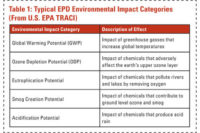Turning Green into the Black




Recently I received a letter from a roofing contractor who was interested in incorporating sustainable roofing into his business. He wrote:
“As a contractor, I’ve found it’s difficult to find the time to research the wealth of articles and information out there on my own. I was wondering if you have any recommendations for more structured and directed training that I could pursue as I try to develop my career and acquire the knowledge necessary to help my clients make the best decisions about their roof assets.”
Because I’m sure many roofing contractors may have the same question, I thought I’d use this month’s column to address the challenge — and opportunity — of adding a little more “green” to your business. My reply to the contractor follows:
“I’m glad to hear you’re interested in integrating ‘green’ into your roofing practice, and I think it can drive opportunities for higher sales and profit. But I also recognize that it is very difficult for a local roofing contractor — or any small business for that matter — to integrate sustainability into its marketing and operations. I tried to address this important issue with a presentation at the 2012 International Roofing Expo titled ‘Turning Green into the Black.’”
I sent him a copy of the presentation and concluded my reply with this: “I hope this helps, and best of success with your business.”
Summing up that presentation, there are three key steps to turn green practice into green profit for your business:
1. Pick a sustainable service and become the local expert. The slide presentation from the 2012 IRE session covers over a dozen of these services, including energy efficiency, rooftop energy production, roof water management, roof daylighting, roof waste management, sustainable roofing materials, and many more to choose from. And remember, being a local expert isn’t that difficult: You don’t have to know everything, just a little more than your customers.
2. Find local partners to help you provide the sustainable service. If you want to promote daylighting, start talking to a local electrician who could work with you to tie skylight sensors into the lighting system. Or build a strong relationship with a local manufacturer’s representative who is also interested in promoting green.
3. Brand your business green. Consider implementing sustainable programs within your business: like recycling programs, a green vehicle fleet, etc. Not only will you save money, but you’ll start to build a reputation for environmental responsibility.
Click here to download a copy of the "Turning Green Into The Black" presentation!
Looking for a reprint of this article?
From high-res PDFs to custom plaques, order your copy today!








